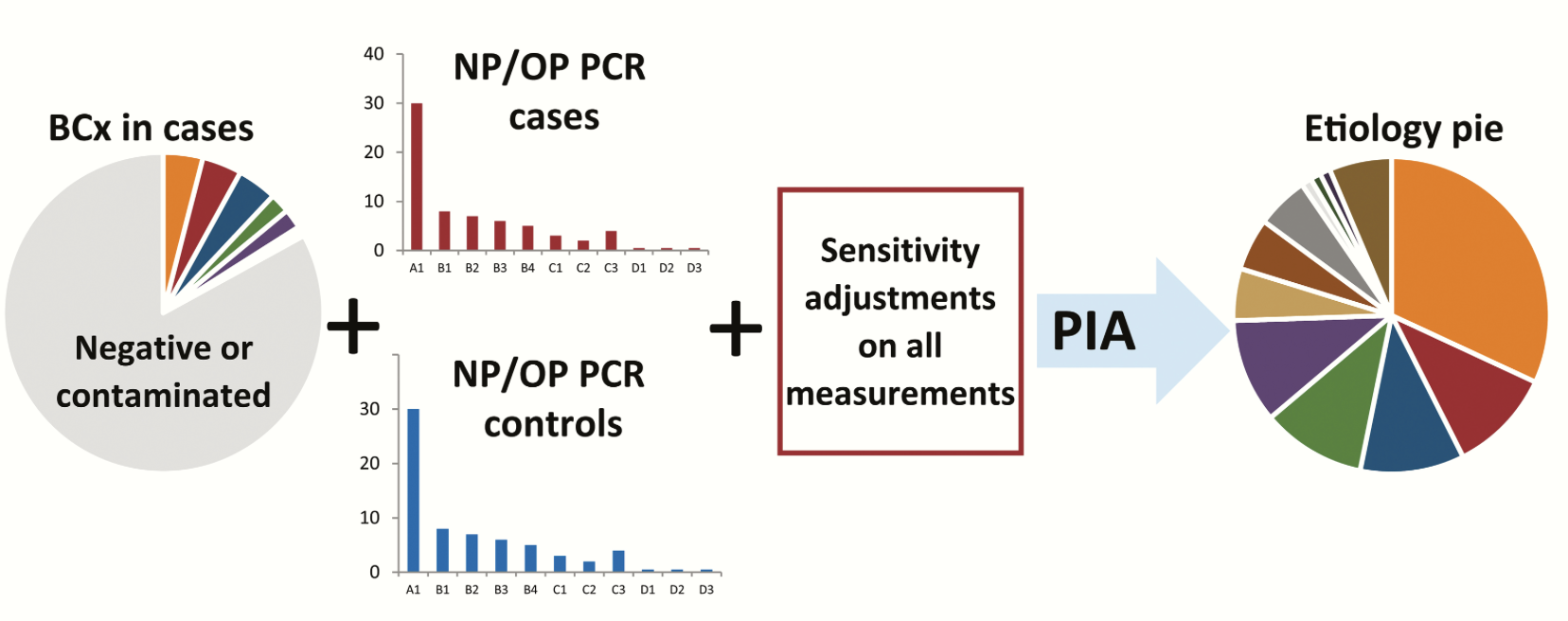Abstract
In pneumonia, specimens are rarely obtained directly from the infection site, the lung, so the pathogen causing infection is determined indirectly from multiple tests on peripheral clinical specimens, which may have imperfect and uncertain sensitivity and specificity, so inference about the cause is complex. Analytic approaches have included expert review of case-only results, case–control logistic regression, latent class analysis, and attributable fraction, but each has serious limitations and none naturally integrate multiple test results. The Pneumonia Etiology Research for Child Health (PERCH) study required an analytic solution appropriate for a case–control design that could incorporate evidence from multiple specimens from cases and controls and that accounted for measurement error. We describe a Bayesian integrated approach we developed that combined and extended elements of attributable fraction and latent class analyses to meet some of these challenges and illustrate the advantage it confers regarding the challenges identified for other methods.
Keywords: Bayesian theorem, etiologic estimations, pneumonia, epidemiologic methods, statistical models
